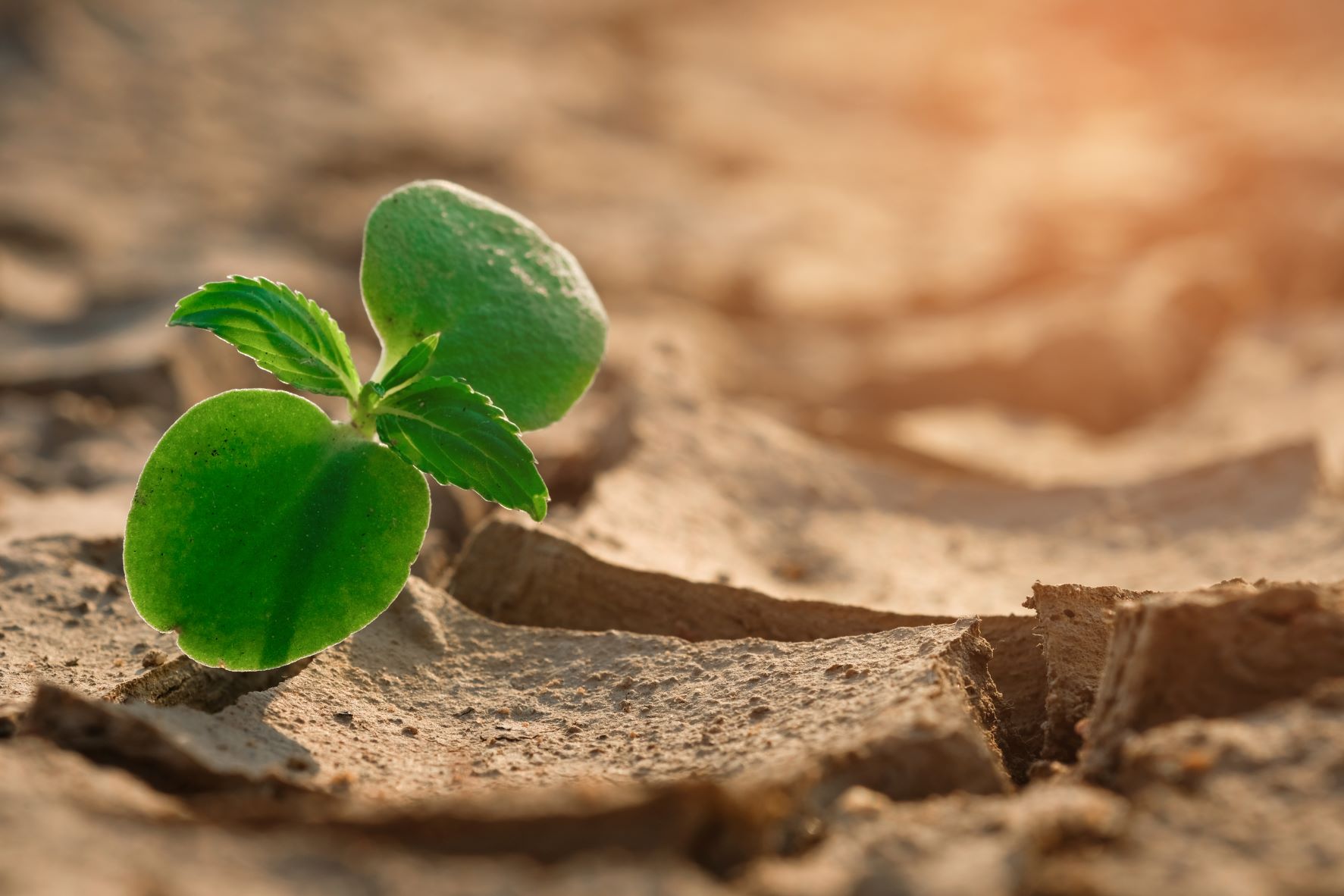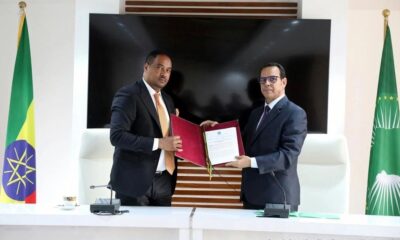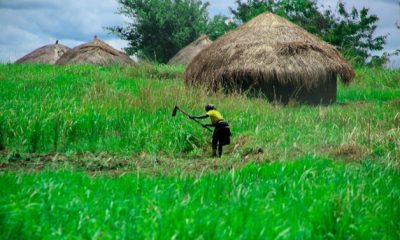NGOs - SDGs
Shifting Africa’s climate change disaster risk architecture before COP26 and beyond

All eyes are on the existential crisis posed by climate change as the United Nations Framework Convention on Climate Change (UNFCCC COP26) approaches, with many warning that lessons for dealing with climate change threats must be learned from how Africa has handled the current COVID crisis.
Resilience in Africa to these climate change impacts can only be built with the assistance of developed countries and these have a vested long-term interest in providing this support, says Ange Chitate, COO African Risk Capacity Limited.
“Beyond COVID, the most critical risk to Africa is the availability of water, which is directly linked to climate change. The continent is extremely vulnerable to and bears the brunt of drought, flooding, cyclones and other climate change-led weather events, even though it has actually had very little impact on carbon emission,” says Chitate.
This is particularly serious for a continent like Africa which depends so heavily on agriculture for its economy and employment.
“When one considers that agriculture sustains two thirds of Africa’s employment and that more than 80% of agriculture in Africa is conducted by small- to medium-scale farmers who are at the mercy of climate change events completely out of their control, COP26 talks have to deliver practical and meaningful support from developed countries to help ensure a high level of preparedness in the developing world for what is being touted as the next pandemic,” Chitate adds.
It is a view shared by South Africa Forestry, Fisheries and Environment Minister Barbara Creecy, who says if COP26 is to be successful, developing countries need support from developed countries in the form of finance, technology and capacity building.
South Africa’s suggested global goal on adaptation sees focus being placed on “the most vulnerable people and communities; their health and well-being; food and water security; infrastructure and the built environment; and ecosystems and ecosystem services, particularly in Africa, Small Island states and Least Developed Countries”.
Minister Creecy also calls on developed countries to ensure access to long-term, predictable and affordable finance for developing communities.
Building Africa climate change resilience through natural disaster insurance relief
“There’s a responsibility for G7 countries to support Africa in managing the impact of climate change by, for example, providing sovereigns with parametric insurance premium finance to help them respond swiftly and decisively to crises fueled by climate change on the continent,” says Delphine Traoré, ARC Limited Non-Executive Director.
Established in 2014, ARC Limited provides natural disaster insurance relief to African countries which have joined the sovereign risk pool.
Along with its partners, which provide premium support, the insurer has already paid over US$65m to seven countries to provide drought relief and address the economic concerns these countries’ most vulnerable citizens face.
Governments then make payments to the most vulnerable households in drought-stricken or other climate-affected areas so the most vulnerable communities can supplement their food budgets if reduced harvest tends to push up food prices.
“Our role is explaining to African governments the importance of having this type of insurance and accounting for food security and disaster risk in their budgetary work process.
“There’s been a lot of work done by ARC Limited with the support of the African Development Bank and other financial institutions to see how we can support these countries with a super replica programme. We need to do more still to find a sustainable way to do premium financing for countries that are not able to afford it but that are quite impacted by climate change impacts,” says Traoré.
Most recently, ARC Limited paid out US$2.1m to the Madagascar Government to meet the food security needs of over 600,000 people affected by the devastating drought.
ARC Limited’s role as a parametric insurer is critically important in building resilience and ensuring a country is able to bounce back swiftly after a natural disaster. “We monitor the rainfall of countries in the risk pool and sovereign insurance pay outs are triggered when the system reveals that there hasn’t been enough rain, before droughts get to a crisis stage, farmers are left with nothing and people are starving,” explains Chitate.
The programme further helps countries build capacity to manage climate-related risks. In this way it attempts to shift the disaster risk management architecture to be proactive, not reactive, says Chitate.
“We see a tangential benefit of this type of programme being the increasing sophistication of countries to better understand risk. The current COVID pandemic is a good example of this.
“When dealing with risk mitigation and management, one needs to examine the reason why governments don’t act. On the insurance side, one of the issues to address is around premium affordability because it’s quite expensive to insure against natural disasters and payment of premium competes against other national priorities,” explains Chitate.
Sovereigns which participate in the ARC programme must also develop a contingency plan which sets out at a very high level how the government would spend any insurance pay out they receive from ARC.
“Through this plan, we ensure the funds get to the intended beneficiaries. Having a plan increases dramatically the speed of execution because at a point the government received the funding, it already has a plan on how to disburse this,” she says.
With US$100 million in its kitty, ARC says it probably has the largest balance sheet dedicated to climate risks in Africa.
NGOs - SDGs
Mercy Ships and Mission Aviation Fellowship renew partnership to bring life-changing surgery to African patients

Mercy Ships and Mission Aviation Fellowship Team (Image: Supplied).
Humanitarian aid organizations Mercy Ships and Mission Aviation Fellowship (MAF) have renewed their partnership to help bring life-changing surgical care to isolated communities across Africa.
Mercy Ships operates state-of-the-art hospital ships, providing free surgeries and healthcare services to sub-Saharan nations with limited access to safe surgical care. MAF’s purpose is to bring help, hope and healing through aviation to people living in isolation and poverty.
The renewed memorandum of agreement between these two faith-based charities enables Mercy Ships to extend their reach further inland to a broader spectrum of the population across Africa, bolstered by MAF’s logistical support. This partnership, launched in Madagascar, will enable teams to access hard-to-reach areas and transport patients in need of critical surgical interventions. This collaboration provides opportunities for those in the most remote and inaccessible regions of the country. Further joint initiatives are being explored in other African nations.
“Traveling by road in Madagascar can be incredibly challenging due to the rough terrain and poor infrastructure,” Michael Jurgensen, MAF Madagascar Country Director, said. “In many cases, reaching remote villages can take days by car, draining valuable time and energy. However, with MAF Madagascar’s support, the [Mercy Ships] patient selection team can cover vast distances swiftly and safely, enabling them to visit multiple locations within a short period. Flying not only saves time for the selection team, but also ensures the team can travel to evaluate and select patients from the most isolated and underserved areas for surgery on-ship at a later date.
A 2016 study of Madagascar revealed that only 20% of the population can access surgical services within a two-hour timeframe, and up to 95% would face financial ruin if they required surgery (source: BMJ Global Health). With a scarcity of surgeons — approximately 1 for every 100,000 people — the prospect of receiving necessary surgical treatment seems unattainable for many (source: WHO).
Bernard van den Bosch, who has worked for both MAF and Mercy Ships, and current Director of the Africa Services Center at Mercy Ships, expressed his enthusiasm: “We are confidently re-engaging with MAF because together we are stronger. The country of Madagascar has many hard-to-reach areas, and MAF is the key to accessing them. Non-profit organizations can ‘compete,’ but ultimately, we all serve the same goal. I see many opportunities for future collaboration and intensive joint efforts.”
Bastiaan de Waal, Africa Regional Director of MAF, added: “By transporting Mercy Ships teams with our aircraft to the interior of Madagascar, we provide help, hope and healing to residents with the surgical care they desperately need. The need is high in these areas, and these people in isolated communities are equally entitled to care. We are pleased to partner alongside Mercy Ships to support this often-forgotten group. Being each other’s hand and foot is what we are called to do and we have a shared synergy of vision and values.”
This renewed collaboration between MAF and Mercy Ships exemplifies how strategic partnerships can enhance humanitarian efforts, ensuring that more people receive the critical medical care they need. The two organizations previously partnered from 2014 to 2016 in Madagascar and have worked together in Liberia.
Mercy Ships’ hospital ship, the Africa Mercy®, has been docked in Toamasina since February and is delivering surgery and training. The ship is actively collaborating with Madagascar’s Ministry of Health to identify the most pressing needs and strengthen the country’s surgical systems through its education, training, and advocacy program.
NGOs - SDGs
Climate Launchpad: Beyond competition, a catalyst for change

Climate Launchpad Competition 2023 Image.
Despite the success of The Climate Launchpad Competition 2023, Climate Launchpad through the support of Climate-KIC and Irish Aid provided additional support to the participants of the competition through the Post-Climate Launchpad Accelerator. Given that the majority of the participants are early-stage businesses, capacity building is a necessity. The post-competition support is divided into 2, The masterclasses that are being handled by the Climate Launchpad Global team which has participants from over 7 African countries, and The national capacity-building session handled by the Climate LaunchPad Nigeria Team.
The Masterclass session featured a business-changing session on important modules like funding options & Instruments, Gender and Climate, Communications and Storytelling, Climate Impact etc. The national capacity-building session focuses on marketing strategies, practical and optimal use of social media and analytics. As an early-stage business in Nigeria, one of the major challenges you face is reaching and communicating with your potential customers at the market entry stage. The modules were selected after feedback from alumni of the competition.
The modules have been proven to be useful as we have started seeing the tractions of the businesses on social media. Overall, the post-competition support program has been no short of helpful to the businesses. We had 5 active participants from Nigeria who have expressed their gratitude for the post-competition support. Each of them will be given a grant of EUR200 to facilitate their marketing and social media usage.
The National Lead for Climate Launchpad Nigeria, Oluwatosin Ajide affirms the importance of the accelerator program “If we have more competition dedicating their support beyond just the pitching like Climate Launchpad does, We would have more green businesses with solid foundations”. He also thanked the Climate Launchpad central team and the sponsors the Climate-KIC and Irish Aid for their constant support in building the green ecosystem in Nigeria.
NGOs - SDGs
GEANCO Foundation and Archewell Foundation Announce Mental Health Initiative for Nigerian Youth

The GEANCO Foundation and The Archewell Foundation has announced an expansion of their partnership, currently serving girls and young women across Nigeria with menstrual health products and education, to include mental health resources and training for young men and women.
This expanded partnership kicked off with its inaugural Mental Health Summit, taking place over two days and serving nearly 200 students in Abuja, Nigeria’s capital. Prince Harry and Meghan, The Duke and Duchess of Sussex and co-Founders of The Archewell Foundation opened the Summit by delivering inspiring remarks to the young people in attendance.
GEANCO intends to hold summits throughout the country over the next year, providing teenage girls and boys with the information, skills, and coping mechanisms necessary to flourish mentally.
“Youth in Nigeria are critically underserved in terms of mental and menstrual health”, said GEANCO’s CEO Afam Onyema. “I am deeply grateful to The Duke and Duchess for partnering with us to address this crisis and provide this vulnerable but inspiring young generation with what they need to thrive in body, mind and spirit.”
A strong stigma also surrounds mental health in Nigeria, which is critically neglected in the country. The World Health Organization estimates that only 3% of the federal government’s health budget goes to mental health, and while up to one-third of Nigerians have mental health challenges, fewer than 500 mental health professionals serve the country’s 200 million plus citizens. Nigeria’s teens and youth in particular have little to no access to mental health support.
The expanded partnership will also continue the ongoing work to support young girls with menstrual health products and education. An estimated 37 million women and girls in Nigeria experience “period poverty”, meaning they are unable to access or afford menstrual products like pads, tampons, and underwear. Because of the material difficulties caused by period poverty and the deep stigma surrounding menstruation, millions of girls in the country miss school every month, crippling their educational advancement and deepening Nigeria’s already vast levels of gender inequality.
GEANCO Foundation provides critical health care and education services in Nigeria. Its David Oyelowo Leadership Scholarship provides full tuition, medical care, and social and emotional support to young female victims of terrorism and gender inequality in Nigeria.
-

 Afripreneur10 hours ago
Afripreneur10 hours agoRedefining Real Estate Marketing: An Interview with Imelda Usoro Olaoye, Founder of Thinkmint
-

 Afripreneur9 hours ago
Afripreneur9 hours agoOluchi Anoruo on building SmartPharm and addressing access to healthcare products
-

 Economy14 hours ago
Economy14 hours agoMeta Hosts its First Youth Summit in Nigeria to Drive Innovation and Empowerment
-

 Technology14 hours ago
Technology14 hours agoLG’s Brand Reinvention: A Global Success Story















